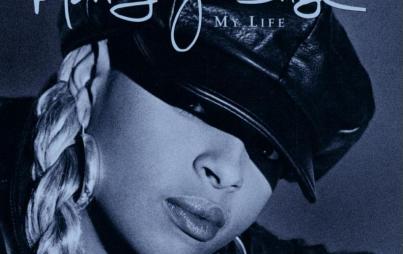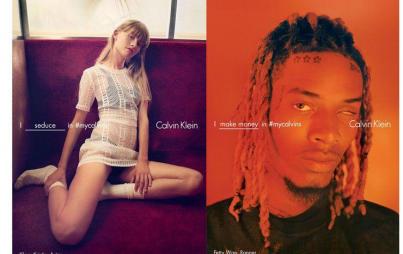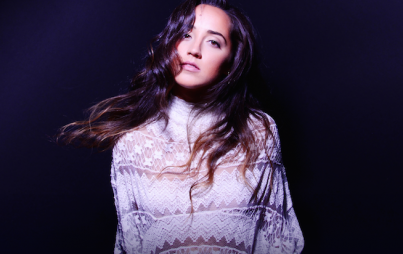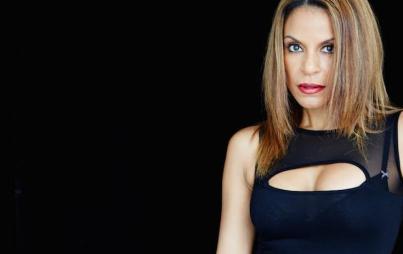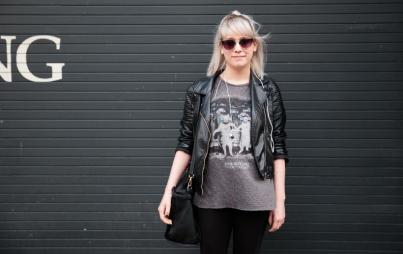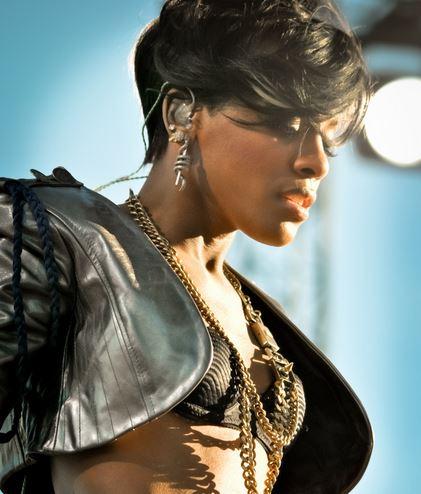
Dawn Richard (Credit: Wikimedia Commons)
Dawn Richard's "Billie Jean" from her new album Blackheart drips with multi-track harmonies, high-gloss production, and robotically-processed vocals. In all these respects, it's much like her work with girl-group Danity Kane (which released its last album in 2014).
There's one big difference, though. Danity Kane is crass radio-ready empty-headed R&B product—"cookie-cutter girl-group pop"—in the words of the girl-group pop-hating alternahipsters at Pitchfork. Dawn Richard's solo album, on the other hand, is a work of idiosyncratic auteurist genius.
It's true that DK3 is less personal lyrically, filled with by-the-numbers bump-and-grind, while "Billie Jean's" sex-talk is couched in more individually memorable horniness ("I'm a Rollin stone/I really can't stay/I know I gave you pussy but that's cause your test look great").
The switch from fake diva to authentic auteur, though, is also a measure of changing times.
Early 2000s R&B was a giant, polished, sugary machine—slick professional pop in the tradition of Motown and disco. That's been the central strand of black female performance for a while. Not coincidentally, it's a performance tradition which is generally viewed as commercial, rote, and uninventive. To the extent that there's any spark involved, it's attributed to the (usually male) producers, not to the stars. There have been exceptions—Janelle Monae comes to mind—but in general, female R&B greats, from Diana Ross to Donna Summer, tend to be celebrated as divas rather than as inventors or innovators. Ray Charles is a genius for combining gospel and R&B; Aretha is a voice.
In the past few years, though, this calculus has started to change. Not all at once, and not precisely in the mainstream yet, but "alternative black woman R&B left-field genius" is starting to be a recognizabel career niche. SZA, FKA Twigs, Cooly G, and Solange aren't giant radio monsters, and they aren't retro neo-soul traditionalists either. Instead, they're weirdo innovators, and marked and appreciated as such, in the way that Bjork (with some struggle against sexism, but still) and Kanye are recognized for their personal visions.
To some degree, it's natural to attribute the new respect to a new, more innovative, more respectable style. Twigs and SZA create spacious, softly stuttering soundscapes, often more akin to alternarock or electronica than to those much maligned girl-group sucrose delivery systems. The new performers can be seen as eclectic geniuses because they're doing something different from their R&B predecessors. The music is more inventive and more personal; that's why it gets more cred.
But is this formulation accurate? Are languid beats really, somehow, innately more inventive, more personal, more authentic than a love of Motown and disco? For that matter, is Ashanti's much-despised, chilled-out, smooth, slick, and yet oddly sparse take on R&B so far removed from SZA's?
And for that matter, is Cassie's "Paradise," with its head-nodding come-on, supposed to be early 2000s sold-out pop, or is it idiosyncratic 2010s alterna-genius? If Pitchfork doesn't tell you, how can you know?
Cassie actually got her start in the early 2000s with a massive mainstream self-titled debut which received very positive press. She showed up on a recent Solange compilation, and is seen as a foremother by many of the new crop of R&B performers. She initially collaborated with Ryan Leslie, and her signature sound is generally attributed to him—though everything she's done since, with or without him, has been uniformly wonderful. Which raises the sneaking suspicion that Cassie's music might be great not because of her producers, but because of Cassie.
Like Cassie, Dawn Richard's career has lasted from the era of no-cred into the era of cred—and in doing so calls into question the easiest narratives about that transformation. Pitchfork argues that Richard was trapped by the studio system and broke free to make more personal music. But her willingness to return to Danity Kane after "breaking free" suggests that maybe the line between girl-group hit factory pop and indie genius isn't all that stark—as indie genius Laura Nyro and girl-group Labelle tried to explain some time back.
Richard doesn't turn her back on Danity Kane on her most recent album either. Instead, she collaborates with fellow DK alum on "Phoenix," where some nicely stochastic beats can't conceal (and aren't meant to conceal) the big, lush, schmaltzy pop center.
My favorite track of the album, though, is probably the last song before the outro. "The Deep" is an earnest, confessional piano ballad—it wouldn't be out of place on a Billy Joel album. Billy Joel could never sing like that, though; Richard soars up in unexpected swoops, the perfect anonymous pop phrasing punctured by her own inhalations. You could see the song as the singer struggling to express her personal voice, fighting against her pop past. "Tryin' to save the little soul I have left/I lost it in a poker game to the highest bidder" could be a bitter comment on the music industry, and "I took it to the deep, to the deep/ cause my heart doesn't swim in shallow creeks," might be a rejection of her DK years.
But it could also be a reclamation of them—a declaration that that soul she's saved has been with her always. Richard, and all her R&B sisters, are artists. If that's suddenly more visible, it's because we're at last using different goggles, not because those depths have changed.

